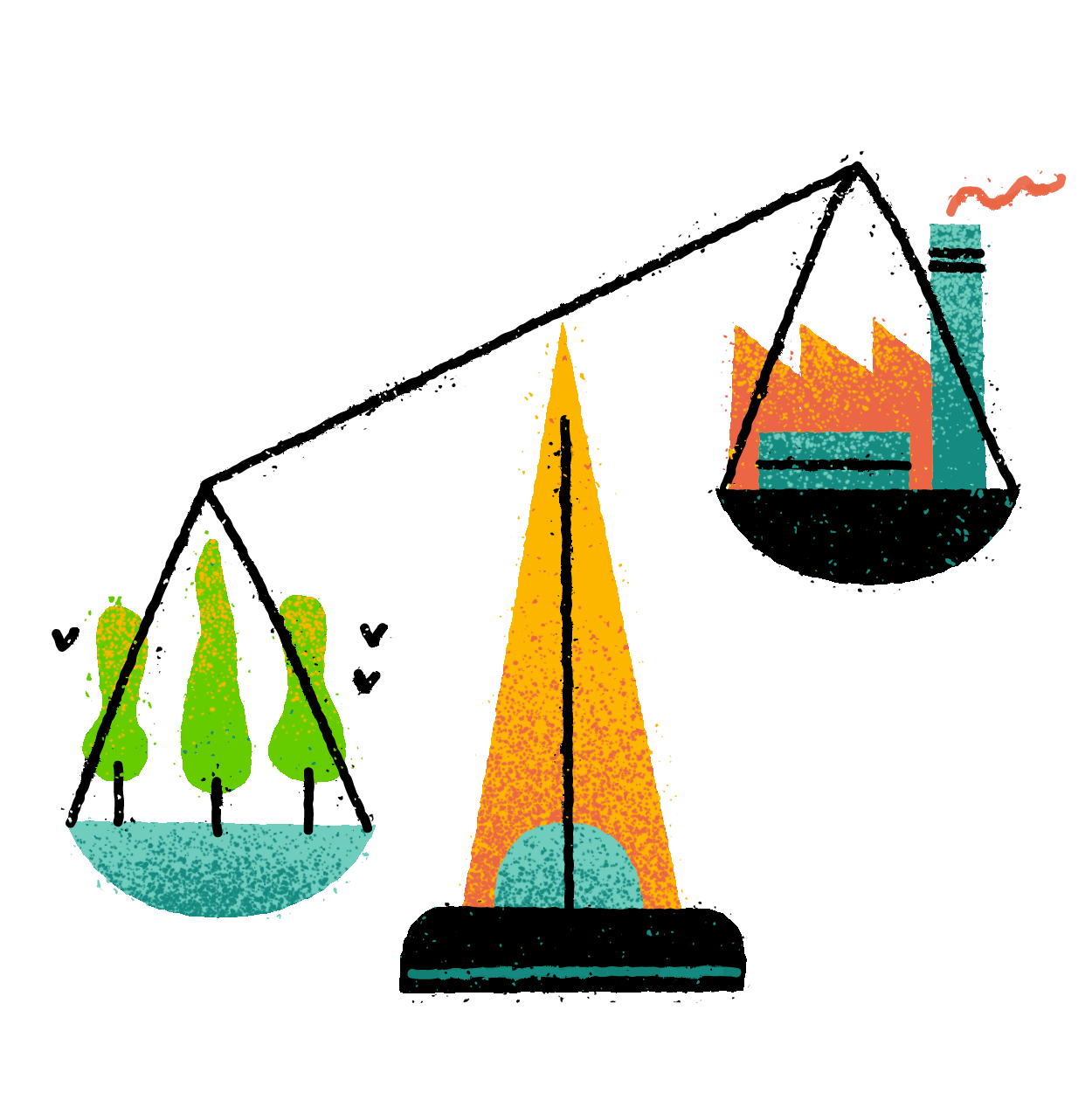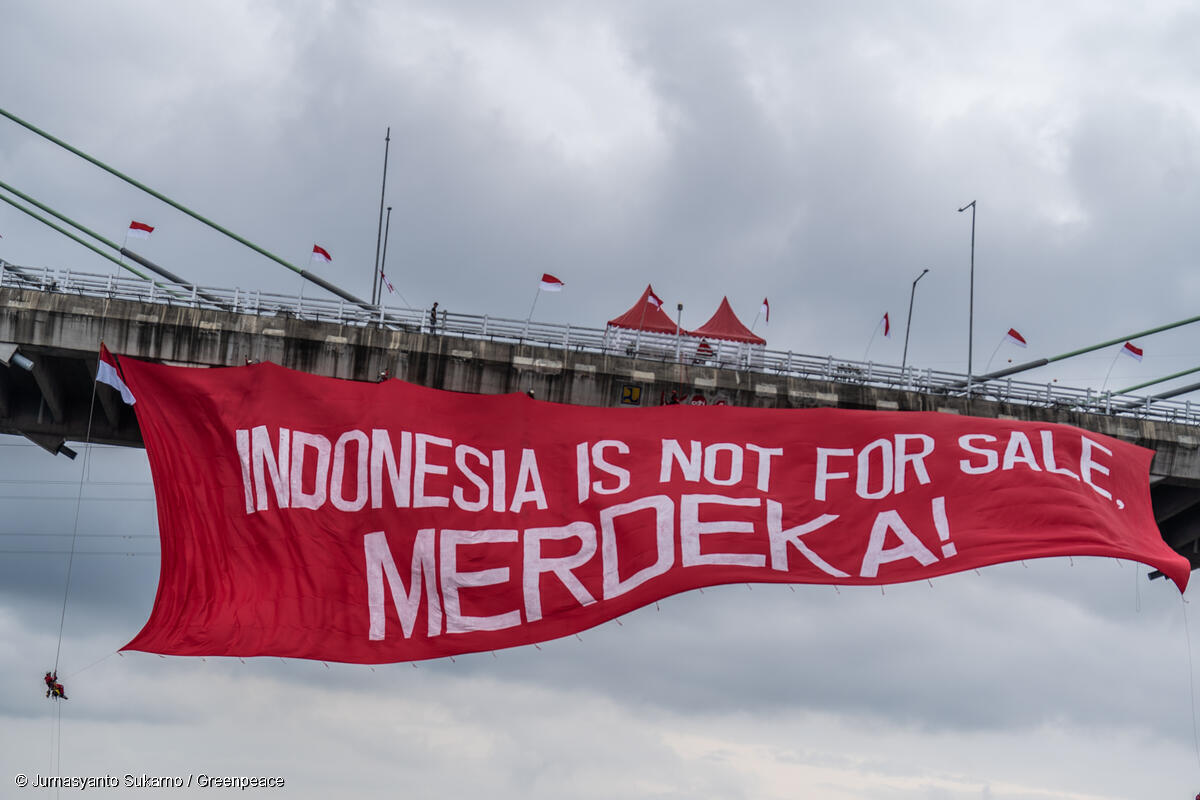Jakarta, 1 Nov. 2024 – Environmental and land rights activist Hendrikus ‘Franky’ Woro of the Awyu Indigenous People in Tanah Papua, along with the Save Papuan Customary Forests Coalition, has expressed deep disappointment over a Supreme Court decision published today rejecting the Awyu’s lawsuit. Members of the Awyu community had lodged a cassation appeal as a final effort in a chain of legal actions taken to protect their customary forest in Boven Digoel, South Papua, from industrial palm oil expansion. The ruling marks yet another setback for Indigenous and local communities striving to safeguard their environment through legal channels.
“I feel heartbroken because I am left with no other legal avenue to protect the land and the people of my ancestral homeland. I am shattered because throughout this struggle, there has been no support from the government, local or central. Who am I supposed to turn to, and where should I go now?” said Hendrikus Woro.
Woro brought his clan’s cassation appeal to the Supreme Court after the Jayapura Administrative Court and Makassar Administrative Appeals Court rejected their initial lawsuit and subsequent appeal. Their suit challenged the environmental permit granted by the Papua Provincial Government to PT Indo Asiana Lestari (IAL), a palm oil company with a 36,094-hectare concession — an area over half the size of Jakarta — located within the Woro clan’s customary lands, a part of the Awyu territory.
The Supreme Court’s three-judge panel decision was split 2-1 with Justice Yodi Martono Wahyunadi dissenting. While the two majority judges rejected the Awyu case based on a strict interpretation of time limits for administrative appeals, in his dissenting opinion, Justice Yodi set aside the issue of time limits in favour of examining the substantive issues of justice affecting the Woro clan and the palm oil company. Justice Yodi argued that the object of the lawsuit — the environmental permit for PT IAL — violates a number of principles in Indonesia’s Environment Law and should therefore be nullified.
“This Supreme Court decision does not endorse the flawed environmental permit, as the two majority judges did not examine its substance in their decision. To the contrary, the dissenting judge’s reasoning indicates that the environmental permit failed to address potential harms to the Indigenous communities who have owned and managed their customary lands for generations,” said Tigor Hutapea of the Save Papua Customary Forest Advocacy Team.
“This decision is yet another heartbreaking blow to the Awyu community, as both the government and the legal system have failed to stand with Indigenous peoples. The struggle to protect Papua’s customary forests has become all the more challenging, especially with the current government’s stated ambition to clear the biodiverse forest landscapes of South Papua for its Food Estate project. Just as the UN biodiversity summit is unfolding right now in Colombia, we receive this disturbing news about increasing threats to biodiversity and Indigenous communities in Papua,” said Sekar Banjaran Aji of the Save Papua Customary Forest Advocacy Team.
In addition to this appeal involving PT IAL, Awyu community members are also appealing in lawsuits against PT Kartika Cipta Pratama and PT Megakarya Jaya Raya, two other palm oil companies poised to expand in Boven Digoel under permits from the Ministry of Environment and Forestry. The Supreme Court’s ruling in the PT IAL case may have an impact on the future of the 65,415-hectare rainforest remaining within PT KCP and PT MJR’s concessions.
Earlier, while awaiting a decision in the PT IAL case, the Awyu Indigenous community gathered 253,823 petition signatures in support of their cause, which they presented to the Supreme Court earlier this year. The case was also at the center of a massive online movement in which social media users urged one another to follow the case with the hashtag #AllEyesOnPapua.
“The Awyu Indigenous community retains the right to their customary forest, which has been theirs since their ancestors first settled in those lands. Ownership permits granted to companies do not erase Indigenous land rights, and as rightful landowners the Awyu have yet to relinquish their claims. We hope the public will continue to support the Awyu people and Indigenous communities across Papua who are defending their land and customary forests. This is part of upholding the law to protect Indigenous rights, guaranteed by local, national, and international law, and a commitment to protecting the Earth from global warming. Indigenous peoples act as nature’s guardians without seeking profit. Papua is not an empty land!” concluded Emanuel Gobay, Director of the Papua Legal Aid Institute.
Note to editors:
Photos and videos are available of actions by Awyu community members and their supporters at the Supreme Court in Jakarta (here and here)
Coalition to Save Papuan Traditional Forests:
Association for Defenders of Indigenous Peoples of the Archipelago (Perhimpunan Pembela Masyarakat Adat Nusantara), Pusaka Bentala Rakyat Papua, Greenpeace Indonesia, Satya Bumi, LBH Papua, Walhi Papua, Eknas Walhi, PILNet Indonesia, Lembaga Studi dan Advokasi Masyarakat, Perkumpulan HuMa Indonesia
Media Contacts:
Tigor Hutapea, Bentala Rakyat Heritage Foundation, +62 812-8729-6684
Sekar Banjaran Aji, Greenpeace Indonesia +62812-8776-9880
Igor O’Neill, Greenpeace Indonesia, [email protected] +61-414-288-424



